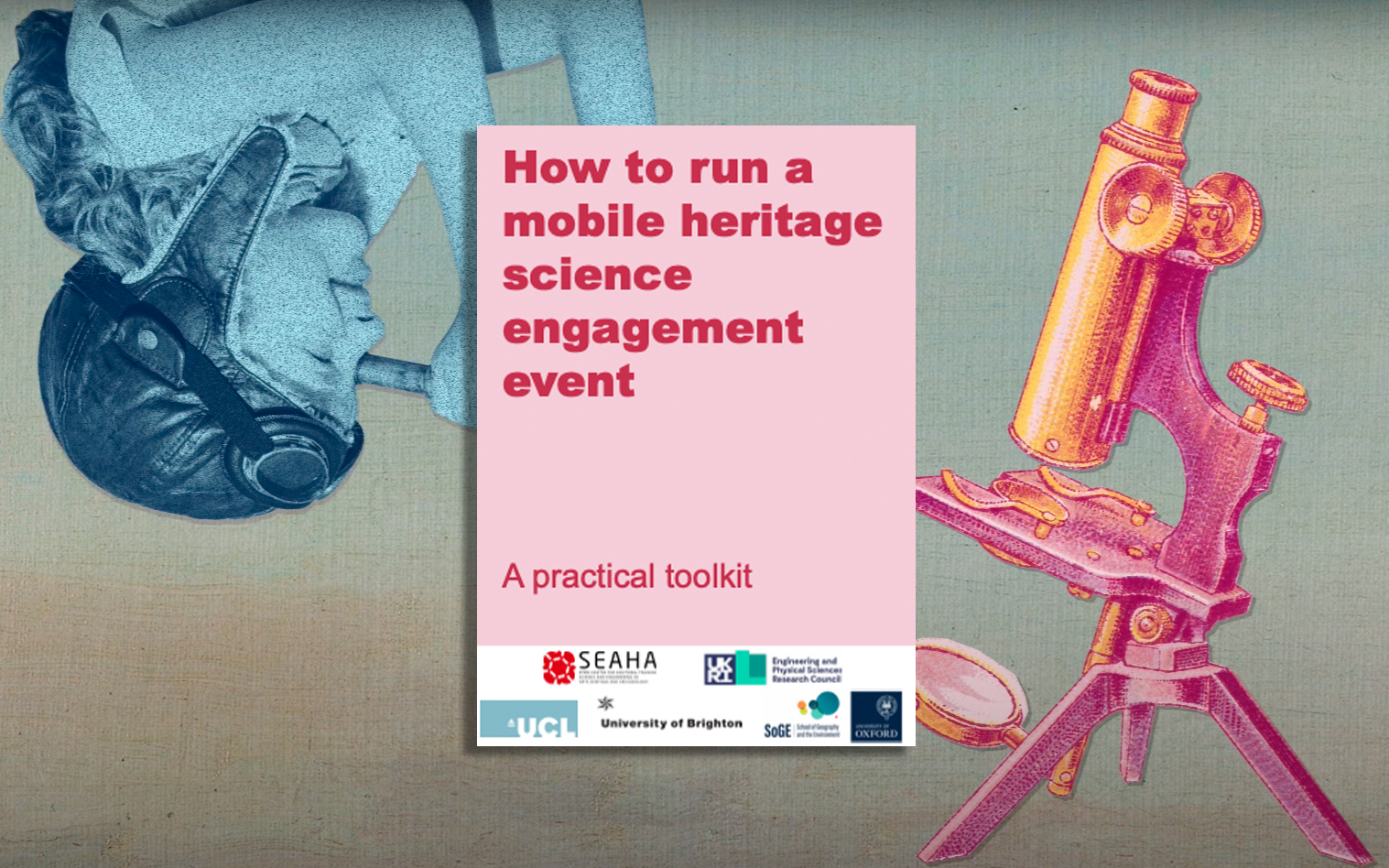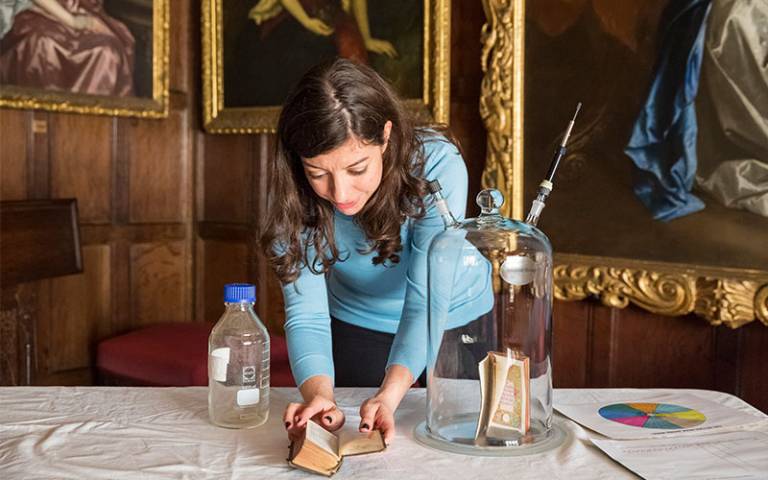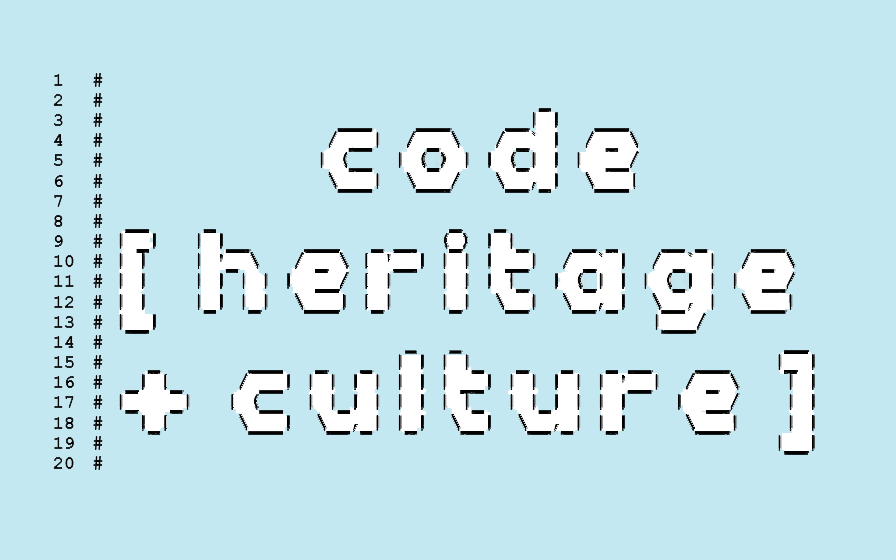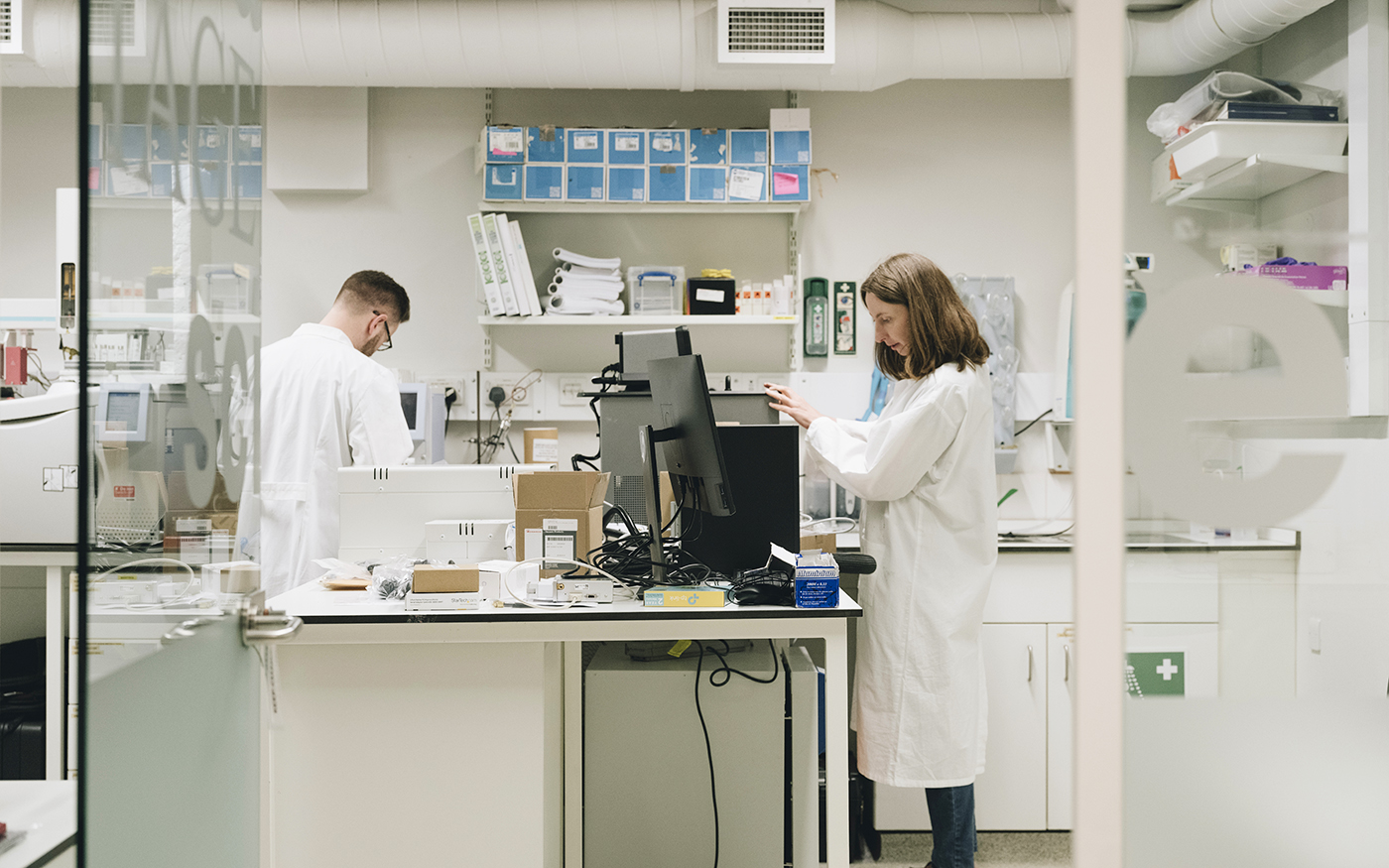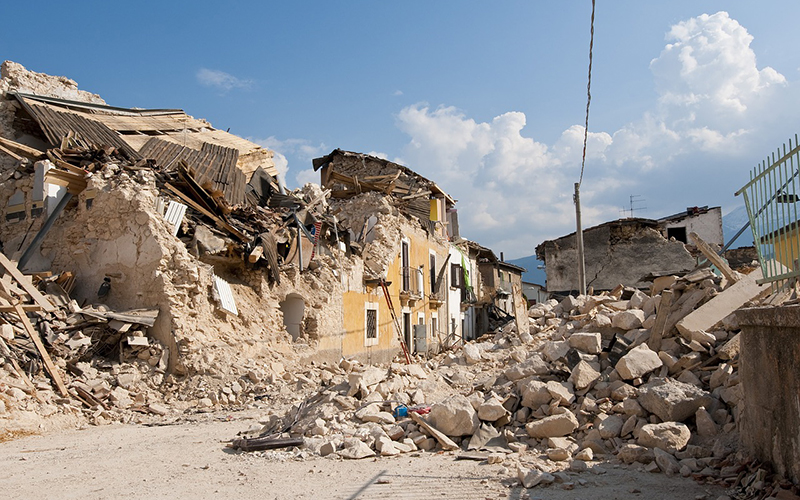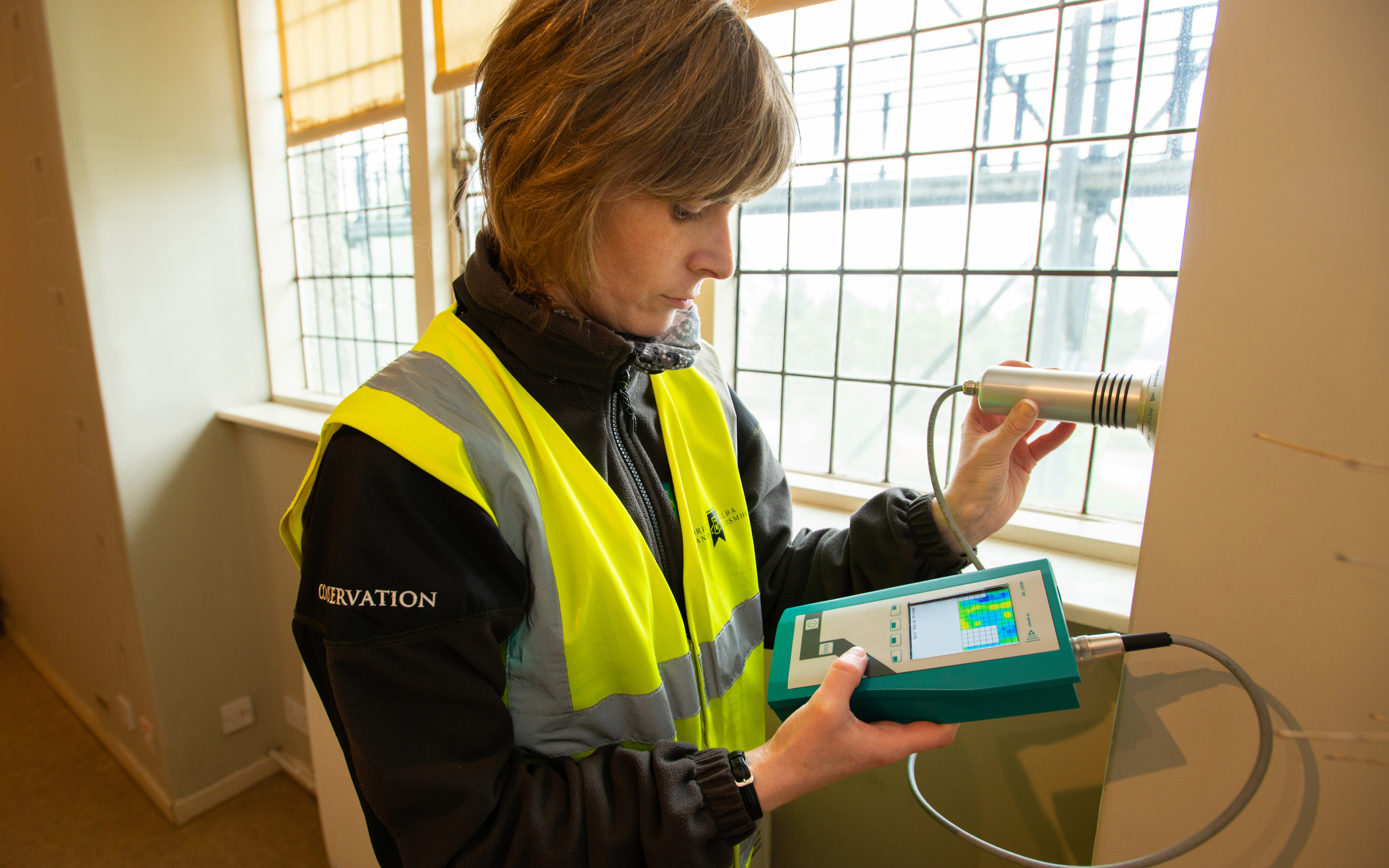Heritage science
Heritage science is the interdisciplinary domain of scientific study of heritage. Heritage science draws on diverse humanities, sciences and engineering disciplines. It focuses on enhancing the understanding, care and sustainable use of heritage so it can enrich people’s lives, both today and in the future.
UCL Institute for Sustainable Heritage has been a leader in the development of heritage science since its establishment. Heritage science delivers scientific evidence in support of sustainable management of heritage and its academic understanding. Through synergies with heritage management and heritage policy at UCL Institute for Sustainable Heritage, the heritage science enables scientific research of tangible, intangible and digital heritage, always in dialogue with curatorial enquiry. We pride ourselves in being a leading voice in heritage science research infrastructure development as well as in engaging with heritage industries.
Research areas
Data science for heritage

This research area develops data-intensive methods and applications enabling deep understanding of heritage and heritage processes, including modelling, systems thinking and artificial intelligence. This includes the analysis of large data sets using statistics, computer science and other scientific methods often informed by machine learning and related techniques.
Our research in this areas includes:
- Developing tools and algorithms to prepare scientific data for modelling inputs to better understand salt weathering in the built environment.
- Applying deep learning methods and image analysis to crowdsourced images to monitor historic facades.
Climate change

This research area focuses on understanding the risks of climate change for heritage though the use of physical experiments and building and simulation.
Our research in this area includes:
- Aiming to understand how climate change will modify the environmental conditions around historic buildings using computational fluid dynamics (CFD)
- Characterising changes in wind-driven rain in the UK using novel indices, with particular implications for material degradation
Simulation and digitisation of heritage

This research area focuses on the creation of methods that reproduce in a computer the real-life behaviour of heritage. It involves 2D, 3D, 4D digital capture of heritage for the purpose of study, engagement or conservation, as well as the creation of computational models of change.
Sensory heritage

This research area focuses on developing cross-disciplinary approaches to exploring the role of the senses in heritage (with an emphasis on smell heritage).
- Our research
We know the hundreds of scents that we perceive every day have an impact on the way we think, feel and behave. Less is known about how they affect the way we engage with history and heritage: part of our research explores how certain smells can help the retention of memories and knowledge in a museum context, make heritage more accessible and inclusive and promote well-being.
Our framework to research heritage smells includes guidelines to identify smells of cultural significance, VOC analysis and sensory evaluation for odour characterisation and smell preservation.
Research into the scent of indoor spaces is strongly linked to indoor air quality (IAQ) research. However, while research on VOCs in the context of IAQ aims to assess potential hazards to human health and wellbeing, and document odour nuisance, olfactory heritage science focuses on non-hazardous, low-concentration odours which reveal links between indoor scents and identity, perceived historic value and collective memories. As such, both tangible (odour sources) and intangible (VOC/smell) heritage are of interest. UCL Institute for Sustainable Heritage has extensive environmental research lab facilities.
Heritage citizen science and crowdsourcing

This research area develops methods and approaches based on participatory methods, to enhance the value and experience of heritage by visitors and users, while simultaneously delivering innovation
Historic and contemporary materials

This research area takes an interdisciplinary approach that combines fundamental and applied science with methods adapted from the social sciences to explore mechanisms of material degradation, developing new analytical techniques for material identification and for identifying deteriorating objects and advancing our understanding of the way in which such objects are valued.
Research stories
Research projects
Online tools for Preventive Conservation (ongoing) - Researchers at the Institute for Sustainable Heritage actively develop accessible tools that can help preventive conservation.
Odeuropa (2021-2023) - Odeuropa aims to capture the olfactory heritage of Europe by using artificial intelligence (AI) to identify the potential of olfactory descriptions, experiences and memories hidden in historic texts and art collections from the 17th century to 1920, and show how to use our sense of smell to engage with Europe’s tangible and intangible cultural heritage. This is a Digital Transformations project funded by EU Research and Innovation programme Horizon 2020.
IPERION HS (2020-2023) - IPERION HS is a consortium of 24 partners from 23 countries that contributes to establishing a pan-European research infrastructure on heritage science. It offers training and access to a wide range of high-level scientific instruments, methodologies, data and tools for advancing knowledge and innovation in heritage science.
APACHE (2019-2022) - APACHE looked at the conservation aspects of emissions of smells from indoor materials (heritage or otherwise) and their effects on heritage objects during storage or display. It will provide valuable background information to address conservation concerns relevant to the introduction of heritage smells into collections and displays. This project was funded by EU Research and Innovation programme Horizon 2020 (Topic NMBP-33-2018).
COMPLEX (The Degradation of Complex Modern Polymeric Objects in Heritage Collections: A System Dynamics Approach, 2017-2022) - This project explored the degradation of plastic artefacts in museum collections as systems, looking at how different degradation processes interact with each other. The project created mathematical models to predict how material properties change over time.
E-RIHS (Implementation Phase)
Heritage Science in teaching
Heritage Science is fundamental to the care and sustainability of heritage. As such, two of our three industrially relevant Sustainable Heritage MSc routes have a strong connect strongly with our Heritage Science research.
Sustainable Heritage MSc (Heritage Science)
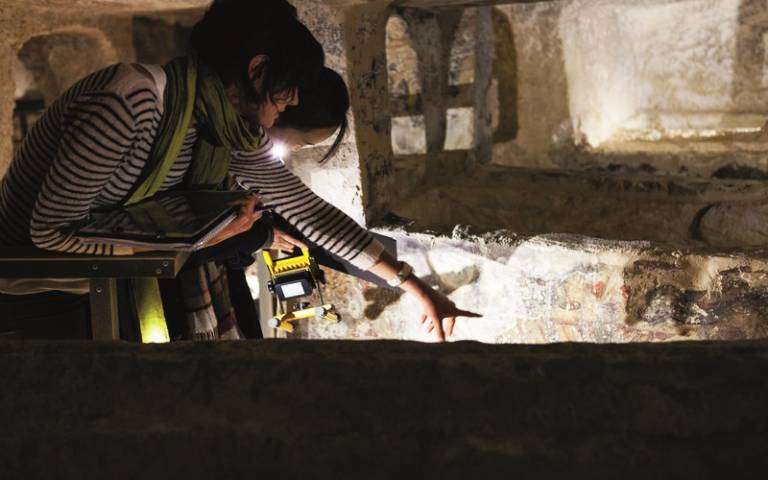
There is a need for highly trained practitioners with the ability to apply rigorous scientific and technical knowledge to solve cultural heritage challenges. The Heritage Science route of the Built Environment: Sustainable Heritage MSc will introduce you to a unique assembly of scientific disciplines. With access to world-leading scientific facilities, you will learn a range of analytical techniques and scientific methods and apply them to real-world heritage challenges.
Relevant modules
- Introduction to Heritage Science
- Statistics for Heritage Science
- Preventive Conservation
- Analytical Methods
In their third term students carry out their dissertation research on a topic of their choice closely linked to heritage science.
Find out more about Sustainable Heritage MSc (Heritage Science) on the UCL Graduate Prospectus ►
Sustainable Heritage (Data Science)
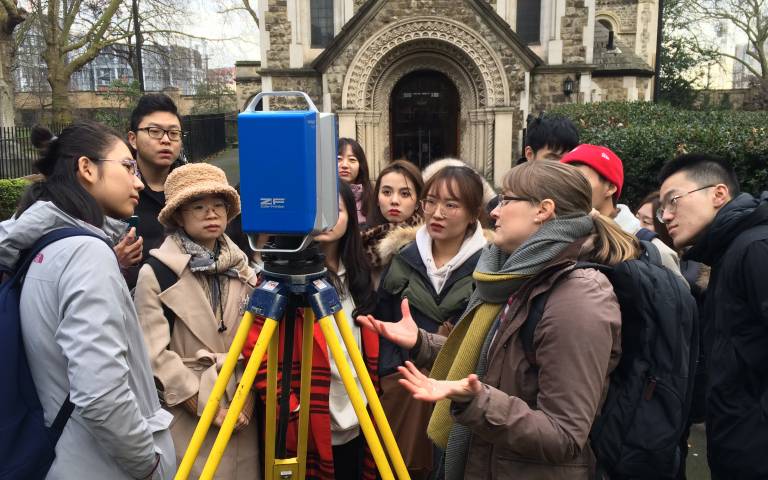
Digital technologies and data have a fundamental role in contemporary society, and cultural heritage is no exception. From historic buildings, sites, landscapes, museums and collections, the world of heritage provides an exciting setting to learn and apply data science skills. The Data Science route of Built Environment: Sustainable Heritage MSc will create expert data scientists taught through the exciting multidisciplinary lens of cultural heritage.
Relevant modules
- Heritage Mapping and Visualisation
- Machine Learning
- Crowd Sourcing
Find out more about Sustainable Heritage MSc (Data Science) on the UCL Graduate Prospectus ►
PhD Research
We have several PhD students working on heritage science related thesis'.
- Adam Frost - CFD simulation of wind driven rain and water runoff
- Cristina Duran Casablancas – ‘Preservation management modelling in archive and library collections’
- Danae Pocobelli – ‘Building Information Models from Monitoring and Simulation Data in Heritage Buildings’
- Kate Burton – ‘Touching the invisible: how do we design tactile models for outreach?’
- Morena Ferreira – ‘Micro-environmental control for the mitigation of mould growth in indoor heritage’
- Rose King – ‘The role of plasticiser loss in the degradation of plastic objects in heritage collections’
- Rosie Brigham – ‘Towards citizen heritage science: monitoring of sites using smartphones and computer vision’
- Sarah Hunt – ‘Mary Rose: Assessment of Environmental Risks during Display’
- Xilan Wu - Effects of particulate matter deposition on heritage surfaces
- Ziwen Liu - Use of natural language processing to understand visitor attitudes to sites
Find our more about our Sustainable Heritage MPhil/PhD programme on the UCL Graduate prospectus ►
Researchers A-Z
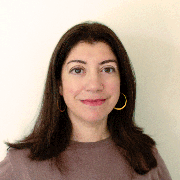
View Cecilia's profile
Send Cecilia an email

Josep Grau-Bové
View Josep's profile
Send Josep an email

Katherine Curran
View Katherine's profile
Send Katherine an email

Pakhee Kumar
View Pakhee's profile
Send Pakhee an email

Scott Allan Orr
View Scott's profile
Send Scott an email
 Close
Close


